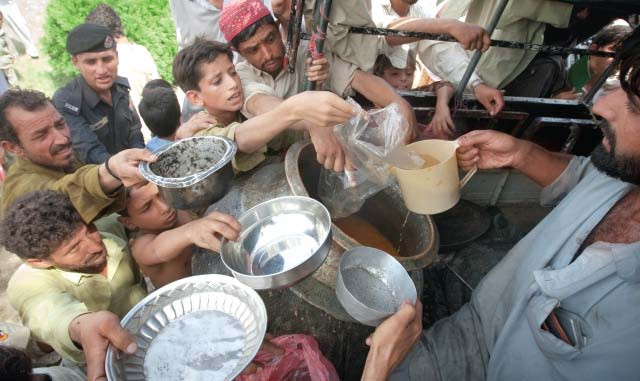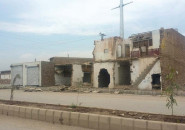Over 250,000 children work in brick kilns
Entire families work in brick kilns, striving to pay off debts that will remain unpaid after decades of work.

But these are not just cases of child labour. Entire families work in brick kilns, striving to pay off their debts that are so much beyond their means that they will remain unpaid even after decades of continuous work.
The Bonded Labour System (Abolition) Act of 1992 defines this as bonded labour, where the workers enter a contract to pay off a debt and work for nominal or no wages. Even though the act banned such labour 18 years ago, practically not much has been done to eradicate this modern form of slavery.
Pakistan Institute of Labour Education and Research estimates that there are 11,000 brick kilns in Pakistan. Of these, 5,000 brick kilns are in Punjab alone, mostly (about 90 per cent of them) in rural areas.
An NGO Ercelawn estimates that there are anywhere between 750,000 and 900,000 people from 200,000 families languishing in these brick kilns, most of them as bonded labourers.
Ishtiaq Ahmad, a social activist who works for EAST, another NGO, said that women and children are at an elevated risk of suffering at the hands of the brick kiln owners. “Women are prepared to work at very low wages in rural areas,” he said, “The environment is very bad for these women, especially their children.”
However, bonded labour is not inextinguishable. Citing examples of some 95 families who were recently freed from bonded labour in a village near Peshawar, Ahmad said that public mobilisation was the only viable way to eradicate this evil.
Four years ago a three-member bench led by the Chief Justice, Iftikhar Muhammad Chaudhry, directed all four Chief Secretaries to get all brick kilns in the country registered.
But the law-enforcement agencies have shown extreme laxity in implementing the bonded labour laws. One month ago, all four Chief Secretaries came before the bench and said that the process of registration was still underway.
There is nothing wrong with the law itself, said Advocate Imran Shafique. “The government [needs to ensure that] the law is adequately implemented.”
Families of many brick kiln workers continue to suffer at the hands of brick kiln owners and their appeals mostly go unheard.
Just recently, in mid September, dozens of brick kiln labourers staged a protest in Islamabad. Their leader Inayatullah, president of All Pakistan Bhatta Labour Union, said that the minimum wage of Rs517 for every 1000 prepared bricks was not prevalent in brick kilns in Punjab.
There are just 5,965 bonded labourers who have been freed to date, Inayatullah said. They too have been living under miserable conditions in different camps that lack basic facilities.
Then there is a family that has been camping outside the National Press Club for two months now. The eight-member unit said a brick kiln owner had confined one of their women and a child for defaulting on a loan.
Mandi Bahauddin DPO Daher Ali Khattak in his report to the Supreme Court said both family members were living with the brick kiln owner “of their own free will”.
The head of the family contested this assertion. “I have sold my wife’s kidney. I have sold my kidney. I am still in debt. I have no more kidneys to sell,” he said, “I want justice.”
Published in The Express Tribune, October 3rd, 2010.


















COMMENTS
Comments are moderated and generally will be posted if they are on-topic and not abusive.
For more information, please see our Comments FAQ